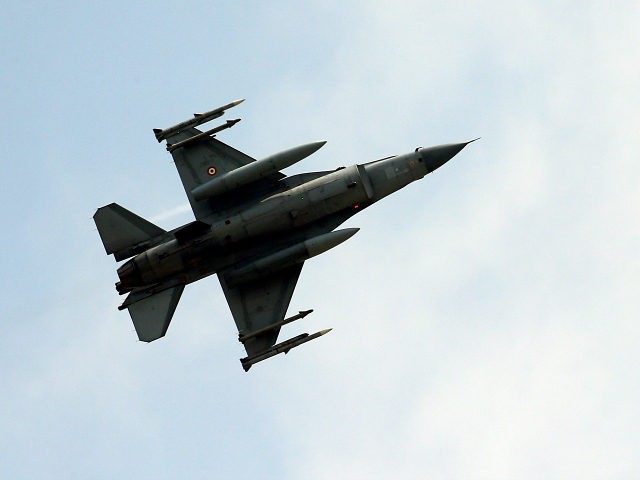The Turkish military reported Thursday that three of its soldiers died and ten others were wounded in an airstrike believed to have been executed by the troops of Syrian dictator Bashar al-Assad, the first such incident in the five-year-old Syrian Civil War.
The Turkish newspaper Hurriyet notes that the Syrian government has not confirmed that it directly targeted Turkish troops, and that Turkish military officials are the only source floating the accusation that the airstrike is “thought to have been carried out” by Assad’s forces. The Wall Street Journal reports that Assad’s government has not taken credit for the attack, nor have they responded to requests for confirmation that Damascus ordered the airstrike.
Hurriyet cites two key points of evidence indicating that Syrian forces orchestrated the strike: “There were no Syrian opposition causalities and the airstrike hit a provisional Turkish military quarter,” and the attack occurred on November 24, the one-year anniversary of Turkey shooting down a Russian warplane that had violated its airspace.
The incident, which occurred after Russia violated Turkey’s sovereignty multiple times, severed ties between Russia and Turkey for months before Russian President Vladimir Putin sent a supportive note to Erdogan in July, when Erdogan successfully quashed an attempted military coup. Since then, the two world leaders have met on multiple occasions, and Erdogan has even threatened the West with seeking further economic cooperation with Russia and China.
Russia is Assad’s preeminent military and economic ally in the world, eclipsing smaller allied nations such as Cuba, Venezuela, and even Shiite powerhouse Iran.
The various militias jockeying for power in Syria do not boast any air capabilities; only the Turkish, U.S., Russian, and Syrian forces can orchestrate airstrikes in the region.
The airstrike occurred on the outskirts of al-Bab, an Islamic State stronghold the Turkish military is working to liberate along with Arab and Turkmen anti-Assad rebels. The Turkish coalition’s push to liberate that city is a direct challenge to the Syrian Kurdish People’s Protection Units (YPG and YPJ), U.S.-backed militias who also oppose Assad. Turkey’s major military confrontations in Syria have come as a result of challenging the Kurdish forces, though Assad and Turkish strongman Recep Tayyip Erdogan have long maintained an acrimonious relationship. Either a Kurdish or Turkish takeover of the city out of Islamic State hands would be a net loss for Damascus.
While the Turkish Prime Minister’s office has imposed a gag order on coverage of the airstrike on Turkish troops, Prime Minister Binali Yıldırım has issued a public statement carried internationally, warning that such an act of aggression will “not be left unanswered” and that Turkey will continue to “clear the area of terrorists.”
“It is obvious that there are some who are unhappy with Turkey’s fight against [the Islamic State of Iraq and the Levant] DAESH. But this attack and other such attacks [on Turkish troops] will be retaliated,” Yıldırım asserted.
Direct military conflict between Assad and Erdogan, who often use similar rhetoric against the West to consolidate their bases of support, comes as little surprise. Both have referred to each other as “terrorists” – Erdogan referring to Assad as “a more advanced terrorist than ISIS,” and Assad decreeing that “the war against Erdogan … is a war against terrorists.” While, during the months Erdogan worked to rebuild his relationship with Russia, he publicly entertained the idea of cooperating with Assad in multilateral piece talks, the two leaders remain at odds, with Assad calling Erdogan a “megalomaniac … out of touch with reality” and a “sick person” in an interview last week.
U.S. officials are concerned that Turkey’s increasingly robust presence in Syria, after the launch of “Operation Euphrates Shield” in August, will lead to more conflict among parties who should instead be cooperating to eliminate the Islamic State. “We have some allies and partners that don’t like each other and they’re not aligned in interests,” a U.S. official told the Wall Street Journal this week. “We want to make sure everyone remains focused on defeating [ISIS].”

COMMENTS
Please let us know if you're having issues with commenting.